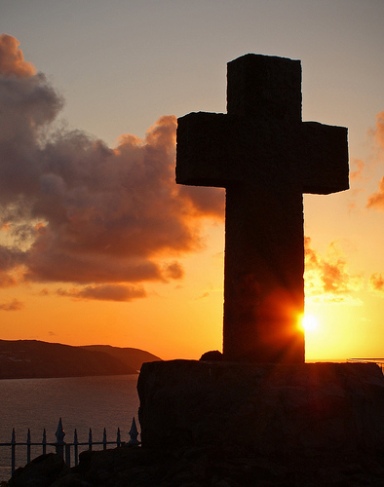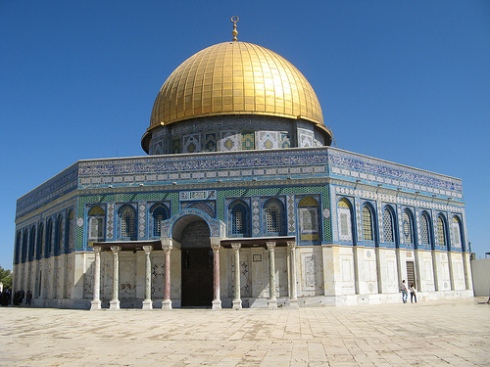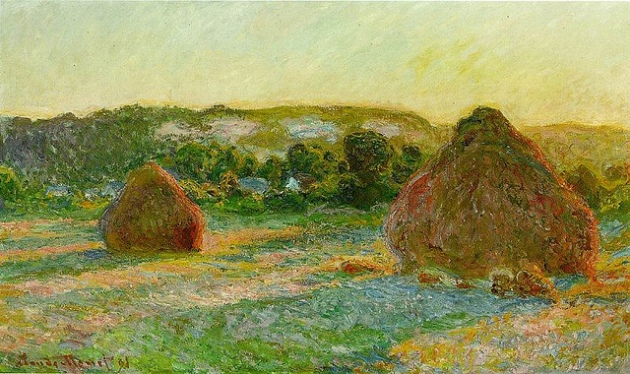We are celebrating the feast of Christ the King. Basically it celebrates ritually the end of time that all of our time is heading toward: the reign of Christ. There is clearly an aspect of fulfillment about this feast, but not one note of triumphalism in the sense of Christ dominating anything.
The Non-Dominator
The word “dominate” comes from the word dominus, or lord. Luke paints a picture tonight of a Christ who is the Lord and who surrenders all lording. This is a constant shock in the gospel.
Let me make an aside about the word king. The king was the ruler of the people of Israel; the ceremony of making him a king involved an anointing; the word Messiah means “the anointed one” and is equivalent to the word king. So too the phrase “Son of God” was a term used of the King.
Notice the sexism here. Only men were kings. In the Christian tradition men and women are anointed as a sign that each of us participates in the life of Christ. Since we all participate in it, let’s think about what it means and doesn’t mean for all of us.
At the beginning of Luke’s gospel, the Devil questions whether Jesus is the Messiah/King/Son of God. Later in the gospel the Sanhedrin (the supreme religious body in ancient Israel) similarly questions whether Jesus is really the Son of God/Messiah/King. Now, in tonight’s text, those around Jesus at his death question whether he is the Son of God/Messiah/King. And they do it in an insulting way. They are insulting him because he clearly is not measuring up to their idea of a king; he is about to be crucified in ignominy. That is not how a king is supposed to die. This is not glory, they assume.
From the perspective of the hierarchical culture of the day the way he is insulted is particularly nasty. First the leaders insult him, then the soldiers, then a criminal. The lowest of the low (from their perspective) is even insulting Jesus! Of course that is not Jesus’ perspective.
Jesus Is (and We Are?) Seeing Things Differently
Jesus has known since that experience he had at his baptism that he is God’s child and that God is his parent. This is not about power in the sense of domination. This is about relationship, power in the sense of knowing exactly who he is and how he is related. Jesus is on fire with an eternal flame that comes from within him and which he knows he does not produce for himself. He loves this flame and the love that is behind its existence.
He totally operates out of this power. He forgives those around him; the flame inside keeps giving meaning to his life. He loves while they are dominating. This is the real power and glory that only some are able to see.
Luke paints a detail that represents a growing breakthrough in his story. A little while before this episode, he painted Simon of Cyrene into the canvas, telling us that there was at least one who was not scandalized by the cross, at least one who was willing to pick up the cross and follow Jesus. Now Luke does it again. There is this criminal who is not focusing on the ignominy of Jesus death, but on his evident goodness. The cross does not prohibit this criminal from seeing the lover who will not dominate, but who cannot stop loving. He sees the goodness and says, “Remember me when you come into the reign that you are building.” Jesus is a new kind of lover-king who brings about wholeness by loving despite the inevitable suffering of this world.
Contemporary Gospel Paintings
It was a joy for me this week to visit Dave Winkler’s mom, Helen, and to visit Dorothy Armbruster as well. These two women in their nineties are living in a complex phase of their lives. On the one hand they are grateful for all they have known and loved in this life; on the other hand they are slowly surrendering one object of their love after another and indeed even their ability to function. In the face of this inevitable suffering of life they find time for a joke, for an inquisitive question about someone else’s life, for some effort to love. What icons of God they are!
We are not ashamed of the cross. We are not ashamed to trace it on our bodies when we pray or to trace it on the forehead of those who are being baptized or those who are transitioning into the next life. The cross is never a reason not to love, even to love those who may be putting you on it. This is power. This is glory. This is where the world is heading for people of faith…not toward a world of fear and domination. Amen?
The Feast of Christ the King
Sts. Clare & Francis
November 23, 2013
2 Samuel 5:1-3
Colossians 1:12-20
Luke 23:35-43
Homily by Frank Krebs
Photo by Stuart Williams on flickr.com



